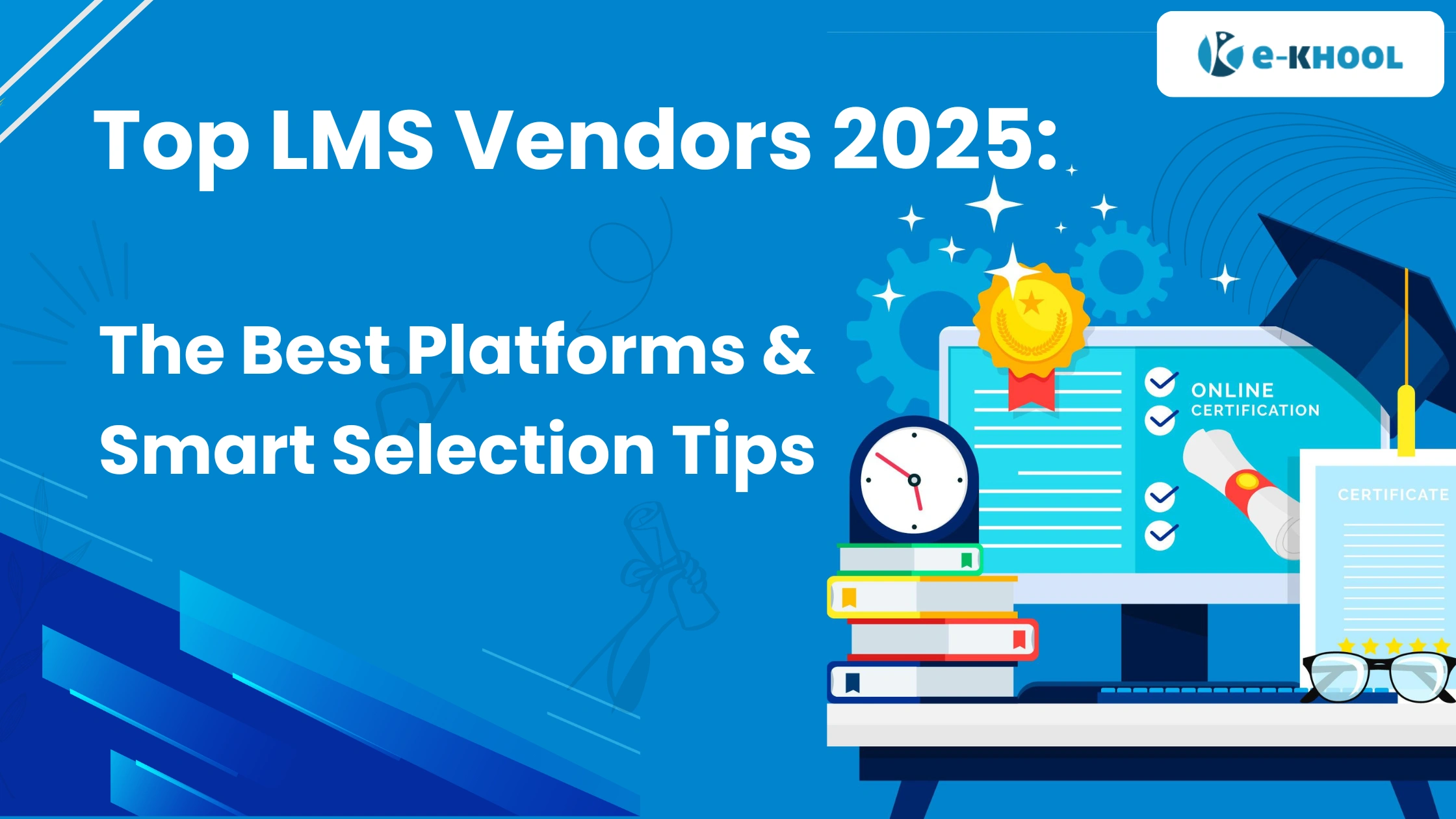Must-Have Features of a Learning Management System
A learning management system provides the solution for the variety of requirements without compromising innovation and creativity. Through this, the user can track, deliver, and give reports of the employee's progress in learning.
Features in LMS
There are numerous learning management platforms available in the market. Analyzing the features and what you expect in the LMS platform will be the best option. We will help you with some of the features that one shouldn't neglect when choosing the right LMS.
Top 30 essential LMS Features
LMS empowers strength to integrate courses and training with modern technologies.The key features include creating courses, admit learners, track and report the progress to the organizations. Here are some widely used LMS functionalities that organizations look for,
30 Should-Have Essential Features of a Learning Management System
Explore the must-have LMS features that enhance learning, training, and organizational growth.
-
Course Development
Modern LMS platforms allow easy creation and delivery of online courses, helping users streamline content development.
-
Integrations
Seamlessly connect external software for content creation, talent management, teleconferencing, and media support.
-
Customization
Enables custom branding and personalization, giving organizations a unique identity and enhancing engagement.
-
Certificate Management
Tracks learner progress and ensures compliance while awarding completion certificates for skills and training.
-
Security
Protects sensitive data with robust protocols, preventing information loss and ensuring privacy compliance.
-
Reporting Systems
Provides insights into learner progress, completion rates, test outcomes, and results analysis.
-
Single Sign-On (SSO)
Simplifies access by allowing users to log in once to access multiple courses or LMS platforms.
-
xAPI & SCORM Compliance
Ensures compatibility with authoring tools, enabling easy upload and use of diverse learning materials.
-
Gamification
Motivates learners with goals, rewards, and achievements through gaming elements in learning.
-
Social Learning
Enhances learning through collaboration, communication, and knowledge sharing among peers.
-
Video Conferencing Integrations
Allows live training, webinars, and global collaboration by integrating with conferencing tools.
-
E-commerce
Enables learners to purchase courses, memberships, and access secure payment gateways.
-
Progress Tracker
Tracks performance, progress, and outcomes, enabling effective learning measurement.
-
Reminders and Notifications
Sends alerts about exams, deadlines, updates, and events to keep learners engaged.
-
Multiple Content Support
Supports multiple formats including text, video, audio, and interactive resources.
-
Mobile Learning
Delivers optimized content across devices, increasing engagement and flexibility.
-
Role-Based Access
Grants tailored permissions and dashboards for admins, instructors, and learners.
-
Course Calendar Adaptability
Allows flexible scheduling, making it easier to attend and manage training sessions.
-
Course Back-Up
Enables secure real-time storage and backup of course materials and content.
-
White Labeling and Branding
Increases trust by allowing logos, banners, and themes to match brand identity.
-
Learner Data Analytics
Tracks learner progress, evaluates courses, and provides actionable insights.
-
Organization Management
Monitors employee training, progress, and performance improvements.
-
User Account Management
Helps administrators manage accounts, assign roles, and coordinate teams.
-
Customized Learning Pathways
Provides personalized learning journeys based on needs and interests.
-
Grade Book
Monitors external activities, calculates grades, and tracks performance.
-
User-Engaged Assessment Tools
Supports quizzes, surveys, knowledge checks, and assessments to measure progress.
-
Live Chat Options
Provides real-time communication with support for video, audio, and file sharing.
-
Blended Learning
Combines online and traditional learning approaches to enrich training delivery.
-
Workforce Analytics
Collects and analyzes employee data to improve productivity and growth.
-
Salesforce Integration
Integrates with CRM tools like Salesforce to enhance training and productivity.
-
Workforce Analytics (Extended)
Advanced analytics capabilities drive organization-wide growth and efficiency.
LMS Vendors 2025 - How to Choose the Top LMS Providers List
To succeed in the business world, many institutions are seeking the right LMS Vendors who can streamline training and education.
ekhool.com
The Essential Features of a Learning Management System Perfected in e-KHOOL
e-KHOOL LMS is the best choice for organizations seeking all 30 feature modules, offering personalized learning paths, high security, content management, collaborative learning tools, mobile access, analytics, reports and multiple software integrations.
Frequently Asked Questions
Personalized Learning Paths for Every Team Member
Contact Support

